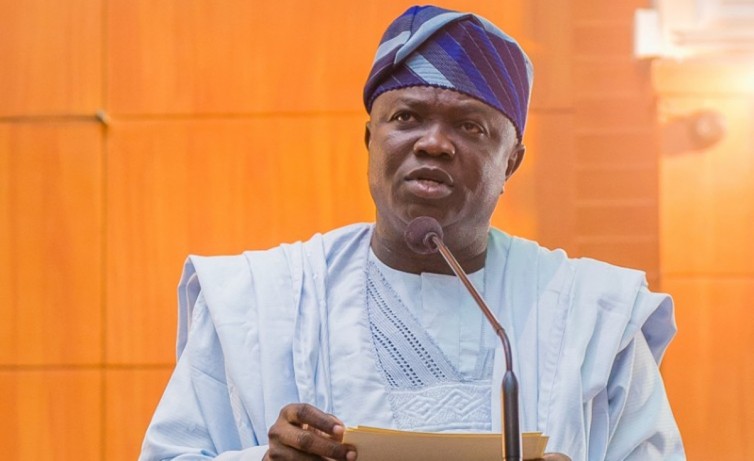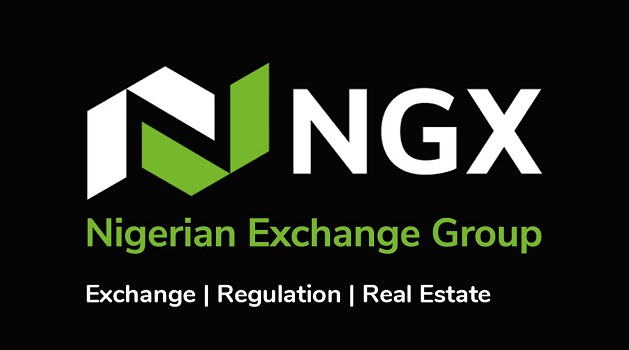News
Lagos Approves Next Phase of CodeLagos Initiative with 15,000 Trained

Governor Akinwunmi Ambode of Lagos State has approved the implementation of the next phase of the CodeLagos initiative, focused on expanding the reach and scope of the project to cater for more Lagos residents through its “In–School” and “Out-of-School” pathways, with over 15,000 individuals trained so far.
CodeLagos initiative, which has set the goal of teaching 1 million Lagos residents basic coding skills, was initiated in 2016.
Giving progress report on the progress of the programme and the commencement of the new phase, Special Adviser to the Governor on Education, Mr. Obafela Bank-Olemoh in a statement yesterday confirmed that over 15,000 individuals have been trained to date and that all is now set to roll out across 5,000 primary and secondary schools, as well as 50 Out-of-School centres by December 2018.
He said on Monday April 9, 2018, coding classes would commence in the Out-of-School Centres, which cater for Lagos residents who are above 16 years and are not currently in any primary or secondary school in Lagos.
“Coding classes will commence on April 9th in four centres – Herbert Macaulay Library, Yaba; Isolo Public Library, Isolo; Ilupeju Public Library, Ilupeju; and Onikan Youth Centre, Onikan. Additional centres including other Lagos State public libraries, community centres and private training centres are scheduled to roll out in a few weeks.”
Bank-Olemoh also disclosed that plans are at advanced stage to commence coding classes in 400 primary and secondary schools across the 6 Educational Districts in the State – both Government and Private – in the coming academic term set to resume this month.
“We will continue to train students in Scratch, Python and Mobile App development, depending on their level. This term we will also be introducing Oracle’s Alice and Greenfoot programming languages, through a partnership with Oracle Academy,” the Special Adviser said.
In a related development, Bank-Olemoh said Governor Ambode recently approved the release of funds for the payment of 224 CodeLagos facilitators, adding that the funds were disbursed to verified facilitators who successfully delivered training to students in the 2017/2018 school year, in both government and private schools.
According to him, “Facilitators in the government schools receive a CodeLagos grant of N25, 000 per term while the facilitators in private schools receive a grant of N20,000. The grants are to compensate the additional time spent for prep work and to help cover some basic expenses like data purchase for personal learning and development.
All CodeLagos facilitators are trained free of charge by Lagos State and receive support and resources throughout the term. Another round of training has been scheduled to hold this April as we commence the new term.
“His Excellency, Governor Akinwunmi Ambode has given us a mandate to prepare Lagosians for the future economy. I believe we can educate one million people in the language of the future. Our success in Lagos State will create a ripple effect across Nigeria, and if we can change Nigeria, we can change Africa. If we can change Africa, we can undoubtedly change the world,” Mr. Bank-Olemoh said.
He said the progress of the CodeLagos programme can be tracked on www.codelagos.org and that the classes are totally free.
News
ARCON to Tackle Digital, Recommits to Ethical Standards

Advertising Regulatory Council of Nigeria (ARCON) has declared its full readiness to confront emerging challenges in the country’s dynamic advertising landscape—particularly those arising from digital media proliferation and unregulated content distribution.

Speaking at the 2025 Advertising Standards Panel (ASP) Stakeholders Forum held recently in Lagos, Dr. Olalekan Fadolapo, director general, ARCON, reaffirmed the council’s commitment to upholding ethical advertising standards and protecting public interest, especially in an era where virtually everyone has become a content creator.
“The digital economy has become massive, and the boundaries are no longer defined by geography. Ensuring compliance in this space is one of our greatest regulatory hurdles,” he said.
Responding to criticisms that ARCON and the ASP may be stifling creativity, Fadolapo insisted that regulation does not equate to censorship but rather ensures alignment with national values and cultural sensitivities.
“Creativity is vast and fluid, but it must be exercised within the limits of the law and ethical standards. We won’t allow so-called creativity to ignite social unrest or breach advertising codes,” he noted, citing examples where ads had violated laws under the guise of creative license.
Earlier in his presentation, Dr. Emmanuel Agu, chairman of the Advertising Standards Panel (ASP), Nigeria’s statutory body for advertisement vetting and regulatory compliance, reaffirmed the panel’s commitment to upholding ethical advertising standards and protecting public interest, especially in an era where virtually everyone has become a content creator.
“The Panel is aware of the challenges that confront it and is taking deliberate steps to address them,” Dr. Agu said. “We are not oblivious to the current advertising realities, including the increasing volume of digital content and the corresponding need for rapid vetting processes.”
Dr. Agu acknowledged that the digital boom and content decentralization have complicated ASP’s regulatory mandate, with social media platforms now flooded with promotional materials that often evade proper scrutiny.
He warned that misleading product claims, unverified influencer content, and the inappropriate use of minors in advertising are among the most pressing concerns currently facing the panel.
“We’ve observed an increase in digital content disguised as entertainment that essentially functions as unvetted advertising. This undermines consumer trust and can negatively affect public morality,” he stated.
Dr. Agu was unequivocal in stressing that all promotional content, regardless of format or platform, must be vetted by ASP before public exposure.
News
NGX Group Chairman Seeks Regional Collaboration to Unlock West Africa’s Trade, Investment Potential

Umaru Kwairanga, chairman, Nigerian Exchange Group (NGX Group), has called for stronger regional cooperation to harness the untapped potential of West Africa’s trade and commodity markets.

Speaking at the inaugural West Africa Economic Summit (WAES) 2025 held under the theme “Unlocking Trade and Investment Opportunities in the Region”, Kwairanga highlighted the critical role of capital markets and commodity exchanges in transforming the region’s abundant natural resources into organised, transparent capital that fuels industrialisation and inclusive economic growth.
The summit brought together key stakeholders from across West Africa to deliberate on strategies for accelerating regional integration, strengthening capital markets, and unlocking the full potential of intra-African trade.
In his remarks during a high-level panel on “Commodities as Capital: Regional Commodities Exchange & Reserves”, Kwairanga noted that despite West Africa’s wealth of raw materials, the region continues to face a paradox of resource abundance coexisting with capital scarcity.
“As a nation and region, we are abundantly rich in raw materials, but often poor in capital outcomes. This paradox is not due to a lack of resources, but due to the way these resources have historically been excluded from structured financial ecosystems.
Commodities, whether agricultural, mineral, or energy, must be seen not just as tradeable goods, but as investable assets capable of powering industrialisation, job creation, and macroeconomic stability,” he said.
Kwairanga emphasised NGX Group’s commitment to building resilient market infrastructure that supports price discovery, clearing, settlement, and investor protection, systems that can underpin thriving regional commodity markets.
He highlighted NGX Group’s role in mobilising capital for commodity value chains through IPOs, bonds, and structured funds, citing the success of NGX-listed companies like Presco and Okomu Oil as models for attracting long-term investment.
On the question of regional versus national commodity exchanges, Dr. Kwairanga advocated for a dual approach that combines the strengths of national platforms with the scale and integration benefits of regional frameworks.
“National exchanges address local needs and build depth, but for West Africa to unlock the full potential of commodity trade, we must connect these markets under a regional structure.
“Regulatory harmonisation will be key, and this is where NGX Group’s experience in governance, coupled with platforms like the African Exchanges Linkage Project and the Pan-African Payment and Settlement System, can help align standards and enable seamless cross-border transactions,” he stated.
Addressing liquidity challenges, Kwairanga outlined the need for harmonised rules, trustworthy infrastructure, product innovation, and incentives to drive participation. He called for public-private partnerships and regional integration to deepen market liquidity and ensure efficient price discovery.
Beyond the panel discussions, Kwairanga commended the vision of President Bola Tinubu and the Minister of Foreign Affairs, Ambassador Yusuf Maitama Tuggar, for spearheading the summit. “There is power in unity and prestige in size. The great economic powerhouses of the 21st century, such as the United States and China, have risen to prominence partly because of the scale of their markets.
A united West Africa can achieve the same if we work together on initiatives like this,” he said, expressing optimism that the summit would produce actionable frameworks to reduce trade barriers, encourage regional investment, and fast-track economic growth across ECOWAS.
NGX Group, he added, remains committed to supporting cross-border investments, citing its participation in the African Exchanges Linkage Project and the increasing regional footprint of NGX-listed companies such as Dangote Cement, First Bank, Zenith Bank, Access Bank, and Ecobank.
News
DBN Awards N13m in Grants to Tech Startups

Development Bank of Nigeria (DBN) has awarded a total of N13 million in grants to three standout tech startups at the 2025 Techpreneur Summit held in Lagos, reinforcing its commitment to innovation and inclusive growth among Nigeria’s micro, small, and medium enterprises (MSMEs).

The winners include: BuyScrap, a digital marketplace for recyclable materials – N6 million; Qiqi Farms, which connects local farmers to hospitality and export markets – N4 million; Eco-Cyclers, a youth-led recycling initiative based in Enugu – N3 million
Alongside the grant awards, DBN also launched a new digital data asset, a first-of-its-kind platform aimed at enabling data-driven decisions within the MSME ecosystem.
The platform offers deep insights into business trends, sector-specific challenges, and growth opportunities—supporting smarter policymaking and targeted investments.
In his keynote address in Lagos, Tony Okpanachi, managing director/ CEO, DBN, described the event’s theme, “CTRL + SHIFT: Tech Empowered Movement for Naija,” as a strategic call to reimagine enterprise development in Nigeria.
“This isn’t just a keyboard shortcut,” he said. “It’s a mindset reset—powered by technology—to build a more inclusive, innovative, and resilient business landscape. From financing to innovation, DBN remains committed to enabling MSMEs to thrive.”
Okpanachi emphasized that the Summit aligns with DBN’s AMPLIFI Strategy, which integrates digital transformation, sustainability, and scalability into its core programs.
He highlighted initiatives such as the Digital Shift Workshops and the Eco-Innovation Challenge as key steps toward embedding innovation in Nigeria’s MSME sector.
Encouraging young innovators, he added: “The future belongs to those bold enough to imagine and build it. DBN is proud to support the ideas that will shape tomorrow.”
A major highlight was the unveiling of the DBN Data Asset—a digital platform designed to provide real-time, evidence-based insights into Nigeria’s MSME landscape.
The platform combines DBN’s proprietary data with external sources like the National Bureau of Statistics (NBS) to offer a comprehensive view of MSME performance by region and sector.
Jeremy Dan Okayi, DBN’s Head of Strategy, Policy & Innovation, described the platform as: “A reservoir of insight, potential, and direction—built on two years of collaboration and shared vision. This tool will support informed decision-making across the public and private sectors.”

 Telecom1 day ago
Telecom1 day agoMTN Says New N6.98 USSD Charge Won’t Affect Airtime Recharge

 Telecom1 day ago
Telecom1 day agoNnaemeka Ani Calls on African Techies to Rewrite the Narrative

 General News1 day ago
General News1 day agoStudy Reveals 7% of Industrial Organizations Tackle Vulnerabilities Only When Necessary

 E-Financial1 day ago
E-Financial1 day agoSofri Rejigs Digital Platforms for Better Customer Experience

 General News1 day ago
General News1 day agoNITDA, NCFRMI Forge Strategic Alliance for Inclusive Digital Transformation of Displaced Nigerians

 Telecom1 day ago
Telecom1 day agoCrypto Scam Unmasked: U.S. Recovers Record $225m in Global Fraud Bust

 E-Financial1 day ago
E-Financial1 day agoDLM Group Unveils Innovative Sovereign Bond Backed Composite Notes

 E-Financial1 day ago
E-Financial1 day agoFidelity MD,Onyeali-Ikpe Champions Lifelong Learning and Sisterhood for Women’s Career Growth





















